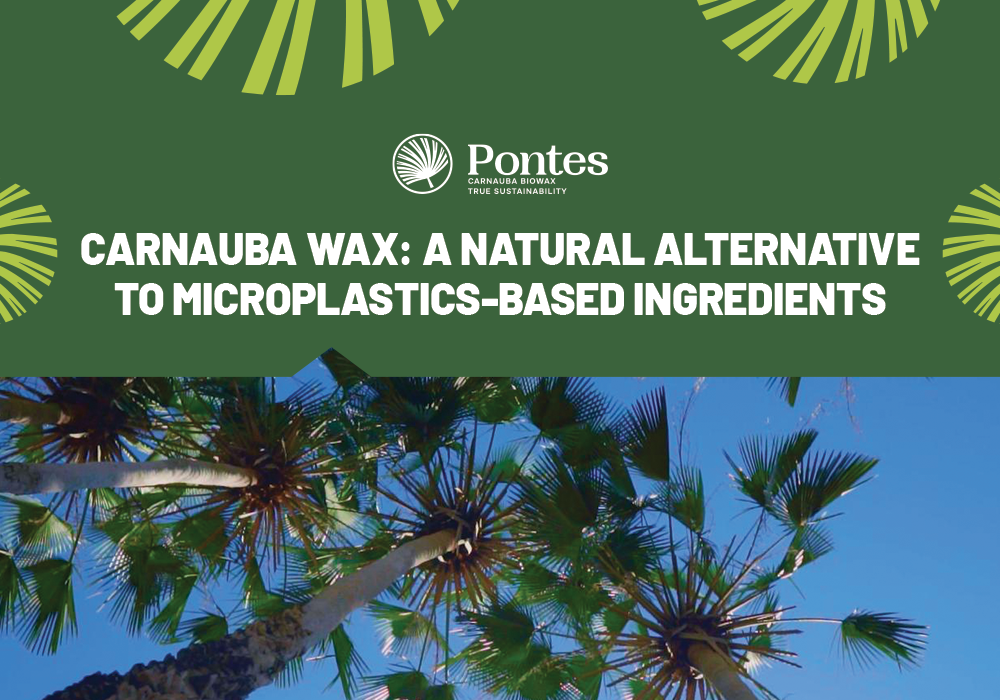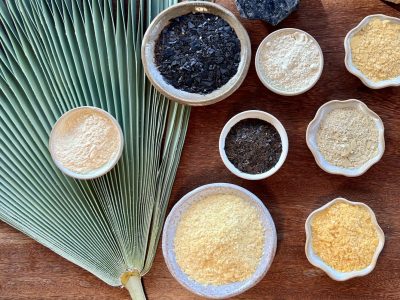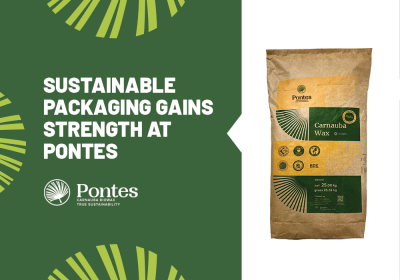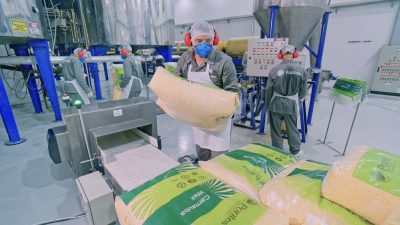Carnauba wax, derived from the leaves of the Copernicia prunifera palm native to Brazil, is increasingly recognized as a sustainable, biodegradable and natural alternative to microplastics and synthetic polymers commonly used across various industries. Biodegradable, renewable, and versatile, this natural wax offers effective solutions without compromising environmental balance.
Environmental pollution, plastic waste, and especially microplastics, are among the greatest environmental challenges of our time. The deliberate use of microplastics poses a serious threat to both the environment and human health due to their persistence in ecosystems and difficulty of degradation.
Microplastics are tiny plastic particles that can result from the fragmentation of larger plastics or be intentionally produced for industrial use. These materials are widely used as additives in many everyday products, including cosmetics, makeup, household cleaning products, and fertilizers. They are also found in paints, varnishes, and plastic pellets used as raw materials in manufacturing plastic parts and films.
Natural Alternative to Microplastics-Based Ingredients
Pontes’ natural and biodegradable carnauba wax products offer a response to the growing demand for alternatives to microplastics. Sourced 100% from renewable plant material, our wax exhibits exceptional performance properties that can replace synthetic waxes and microplastic-based ingredients.
Properties of Carnauba Wax:
• Coating agent: Creates a smooth, transparent layer that protects against moisture, oxidation, and physical wear, extending product life and quality.
• Excellent gloss agent: Provides a shiny finish widely used in polishes and coatings to enhance the overall appearance of products.
• High thermal stability: Its heat resistance makes it ideal for demanding industrial applications such as automotive waxes and polishes, without the environmental impact of synthetic alternatives.
• Improved texture and consistency: Enhances the texture and uniformity of various formulations like cosmetics and hygiene products, ensuring smooth and even application.
• Increased durability: Adding carnauba wax to formulations boosts product durability, making them more resistant to wear and degradation.
• Biodegradability: A natural wax that breaks down in the environment without leaving toxic or persistent residues.
• Renewable source: Extracted by harvesting only the palm leaves, ensuring a continuous and sustainable supply.
Practical Applications Free of Microplastics
In personal care, carnauba wax is used in lipsticks, mascaras, creams, and deodorants as a substitute for microplastics such as polyethylene (PE), polypropylene (PP), and polymethyl methacrylate (PMMA). Its ability to provide texture, adhesion, and stability makes it ideal for green formulations seeking sustainable alternatives.
In the food industry, it serves as a coating agent for fruits, confections, and supplements, replacing petroleum-derived synthetic waxes and delivering healthier final products that meet the expectations of conscious consumers.
In automotive and cleaning industries, carnauba wax delivers high-performance shine, protection, and finish without the environmental risks associated with plastic waxes, synthetic resins, and microplastic-derived compounds.
Commitment to a Sustainable Future
At Pontes, we take pride in producing biowaxes that respect the environment while maintaining high quality. Choosing carnauba wax over microplastic-based ingredients is a conscious decision, for a cleaner future, safer products, and a fairer supply chain.
Replacing microplastics with natural ingredients like carnauba wax is not just a trend, it’s a necessity. Carnauba wax proves that it is possible to combine technical performance, environmental responsibility, and social commitment in a single ingredient. This is the transformation Pontes is proud to lead.





